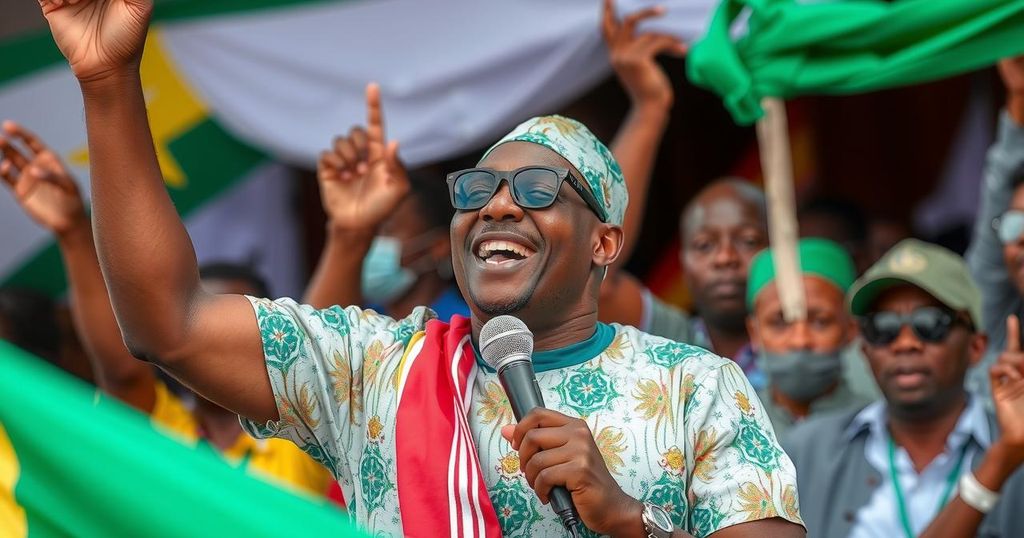Ghana’s opposition party claims that John Mahama has won the presidential election with 56.3% of the vote against Vice President Bawumia’s 41.3%, amid ongoing economic challenges. The Electoral Commission is still finalizing official results, which are expected by Tuesday. The election marks Mahama’s comeback attempt after previous unsuccessful bids, with high inflation and economic dissatisfaction at the forefront of voter concerns.
The opposition party in Ghana has declared victory in Saturday’s presidential election, citing provisional results favoring their candidate, John Mahama. Despite this claim, the Electoral Commission is still in the process of collating official results. The election pitted Mahama of the National Democratic Congress (NDC) against the ruling New Patriotic Party (NPP) candidate and Vice President Mahamudu Bawumia. The election, largely influenced by economic challenges, particularly high inflation and a recent IMF bailout, saw Mahama reportedly capturing 56.3 percent of the votes compared to Bawumia’s 41.3 percent, according to NDC spokesman Sammy Gyamfi.
As the country faced significant economic turmoil, voters selected a successor to departing President Nana Akufo-Addo, who is concluding his maximum two-term tenure. The contest focused on economic dissatisfaction prevalent among constituents, which influenced the electorate’s desire for change. Mahama, who held the presidency from 2012 to 2017, is attempting a political revival following two previous unsuccessful bids. Although voting proceeded predominantly without major incidents, reports indicated violence in specific regions, resulting in fatalities. The Electoral Commission is expected to release official results by Tuesday.
The political landscape in Ghana has been shaped by the alternating rule of the National Democratic Congress (NDC) and the New Patriotic Party (NPP) since the nation adopted multi-party democracy in 1992. The recent election has occurred amid economic hardships, including inflation reaching over 50 percent and a subsequent stabilization that places it around 23 percent. The NPP’s Mahamudu Bawumia faced mounting pressure amid discontent over the government’s management of economic issues, resulting in a heightened public desire for leadership change. Mahama’s resurgence as a contender reflects the shifting political dynamics as Ghana navigates these challenges.
In conclusion, the opposition’s assertion of victory in the Ghanaian presidential election highlights profound public disenchantment with the current administration’s handling of economic issues. The ultimately official electoral results, pending from the Electoral Commission, will determine the nation’s leadership trajectory. Notably, the election has underscored the electorate’s demand for an economic turnaround and reflects the historical pattern of political contestation in Ghana’s stable democratic environment.
Original Source: www.france24.com






